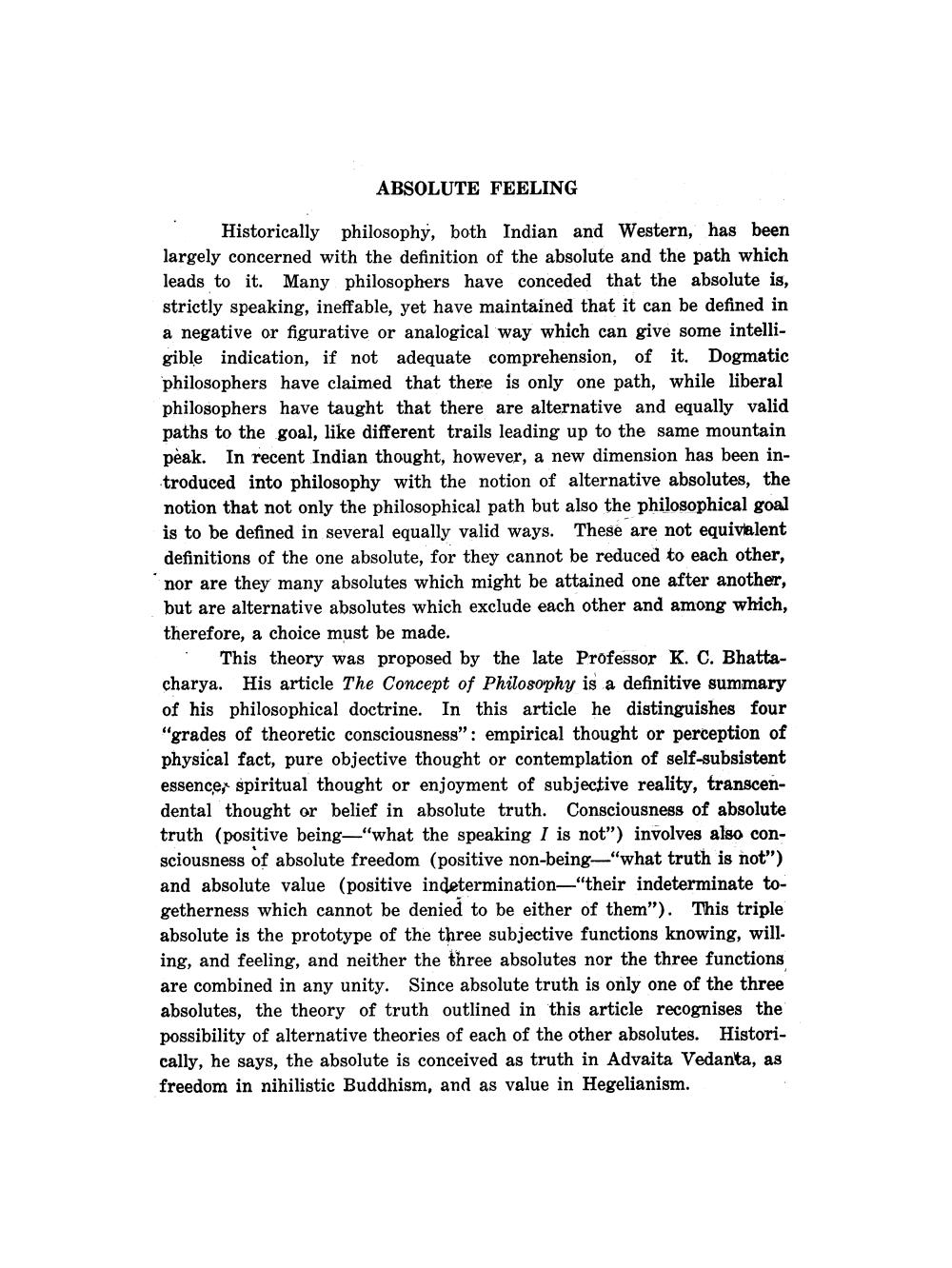Book Title: Absolute Feeling Author(s): Georg Burch Publisher: Georg Burch View full book textPage 1
________________ ABSOLUTE FEELING Historically philosophy, both Indian and Western, has been largely concerned with the definition of the absolute and the path which leads to it. Many philosophers have conceded that the absolute is, strictly speaking, ineffable, yet have maintained that it can be defined in a negative or figurative or analogical way which can give some intelligible indication, if not adequate comprehension, of it. Dogmatic philosophers have claimed that there is only one path, while liberal philosophers have taught that there are alternative and equally valid paths to the goal, like different trails leading up to the same mountain peak. In recent Indian thought, however, a new dimension has been introduced into philosophy with the notion of alternative absolutes, the notion that not only the philosophical path but also the philosophical goal is to be defined in several equally valid ways. These are not equivalent definitions of the one absolute, for they cannot be reduced to each other, nor are they many absolutes which might be attained one after another, but are alternative absolutes which exclude each other and among which, therefore, a choice must be made. This theory was proposed by the late Professor K. C. Bhattacharya. His article The Concept of Philosophy is a definitive summary of his philosophical doctrine. In this article he distinguishes four "grades of theoretic consciousness": empirical thought or perception of physical fact, pure objective thought or contemplation of self-subsistent essence, spiritual thought or enjoyment of subjective reality, transcendental thought or belief in absolute truth. Consciousness of absolute truth (positive being—"what the speaking 1 is not”) involves also consciousness of absolute freedom (positive non-being-—"what truth is not") and absolute value (positive indetermination-"their indeterminate togetherness which cannot be denied to be either of them"). This triple absolute is the prototype of the three subjective functions knowing, will. ing, and feeling, and neither the three absolutes nor the three functions are combined in any unity. Since absolute truth is only one of the three absolutes, the theory of truth outlined in this article recognises the possibility of alternative theories of each of the other absolutes. Historically, he says, the absolute is conceived as truth in Advaita Vedanta, as freedom in nihilistic Buddhism, and as value in Hegelianism.Page Navigation
1 2 3 4 5 6
